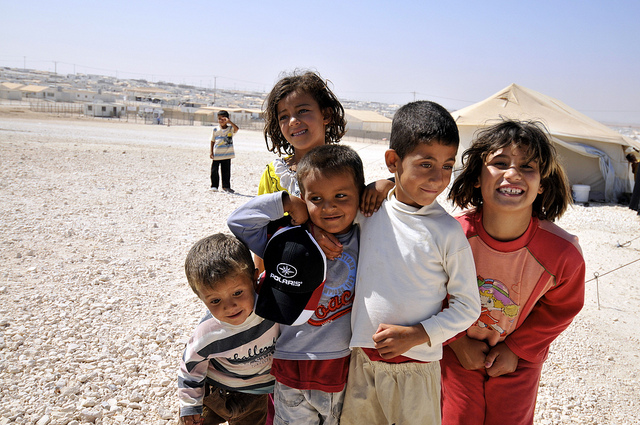Like this article? rabble is reader-supported journalism. Chip in to keep stories like these coming.
Canadians continue to prepare for the thousands of Syrian refugees expected to arrive in the coming weeks. Canada is depicted as a country with a heart of gold that has always been hospitable to refugees and immigrants. After all, welcoming refugees is the Canadian thing to do. However, the dark corners of our nation’s history present a different un-Canadian picture in contrast to the scenes of Canadians welcoming Syrian refugees today.
Canada, historically, has shut its doors to Syrians, even at a time when many perished from famine. Syrians were subjected to the same restriction imposed on Chinese, Japanese and South Asian immigrants starting from the early 1900s. The Canadian government viewed certain groups including Syrians as undesirable. So they took measures to effectively stop their flow into Canada.
The Dominion passed two policies aimed at curtailing immigration from the Asian continent, in 1908. The first required all immigrants from Asia including Syrians to pay a hefty landing fee of $200. The second put the impractical condition that immigrants should come on a direct journey from their homeland and can’t stop in any port along the way.
Baha Abu-Laban, Professor Emeritus at University of Alberta, unearthed a 1913 letter from W.D. Scott, the Superintendent of Immigration in Ottawa. The letter was addressed to a Canadian politician who was about to receive a delegation from the Syrian community pleading to lift the immigration restrictions. Scott wrote it would be a “great mistake” to change the policy that curbed the entrance of “persons of Syrian origin.” He explained the Asian “continent did not supply to this country a class of people who would become assimilated and form true Canadians in the best and widest meaning of the term.”
Syrians were portrayed as unsavory, mentally inferior, lacking the desire to assimilate and the bearer of threatening diseases in Canadian historical accounts. Some Canadians who oppose bringing in Syrian refugees are now echoing similar sentiments on opinion pages and social media newsfeeds.
However, the change of times means the fear of Canadians dying from the disease brought by Syrians has now transformed into security fears. The new Syrian refugees are portrayed to be afflicted with terrorism and can spread extremism rather than disease.
Half a million people died as a result of famine in the greater Syria region during the First World War, yet Canada continued to shut its doors. Canada even labeled Syrians as enemy aliens during the war, placing further restrictions on them. That’s because Syria was part of the Ottoman Empire and the Ottomans entered into an alliance with the Germans. Starving Syrians then ate weeds and grass in an attempt to survive, just like their descendants now are boiling tree leaves to feed their kids.
Some of our elected leaders still subscribe to the same guilt-by-association mantra employed by their twentieth-century equivalents. Several Canadian politicians asked to halt the entry of Syrian refugees following the Paris Attacks despite the dire humanitarian situation.
Canadian politicians may have been oblivious to the fact that Syrians were suffering and starving during the First World War, but they can’t play that card now.
Old Stock Syrian Canadians continued to ask the Canadian government to allow them to bring their relatives to Canada for decades. However, it wasn’t until the 1950s that Syrians were granted the same rights as Europeans to sponsor family members to come to Canada.
Bringing up the uncomfortable aspects of the history of this nation doesn’t undermine the current efforts to welcome refugees. I’m proud of Canadians who are embracing refugees upon their arrival. I was moved by the bags full of hats and mittens students gathered for Syrian refugees at my daughter’s school.
It’s splendid our new government is welcoming Syrian refugees but let’s not pretend that everyone is on board. The pepper spray attack on Syrian refugees in Vancouver maybe a fringe incident, however Canadians who oppose opening Canada’s doors to Syrians aren’t on the fringes of our society.
Anti-immigration attitudes exist in this country now as it did in the past. Perhaps confronting our nation’s history may deter us from repeating the sins of the past.
The historic information about restricting Syrian immigration is based on the book An Olive Branch on the Family Tree, by Baha Abu-Laban, a recipient of the Order of Canada and Professor Emeritus at the University of Alberta, Sociology Department.
Dalia Thamin worked as a radio and TV producer in Canada and the Middle East for 13 years, including working for CBC Radio in Edmonton for 10 years. Thamin is currently a free-lance writer and a graduate student, Cultural Studies, at Queen’s University.
Like this article? rabble is reader-supported journalism. Chip in to keep stories like these coming.
Image: Flickr/foreignoffice



